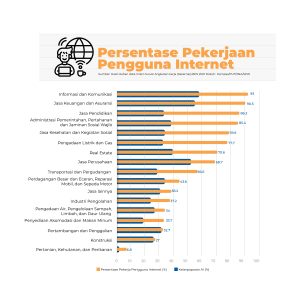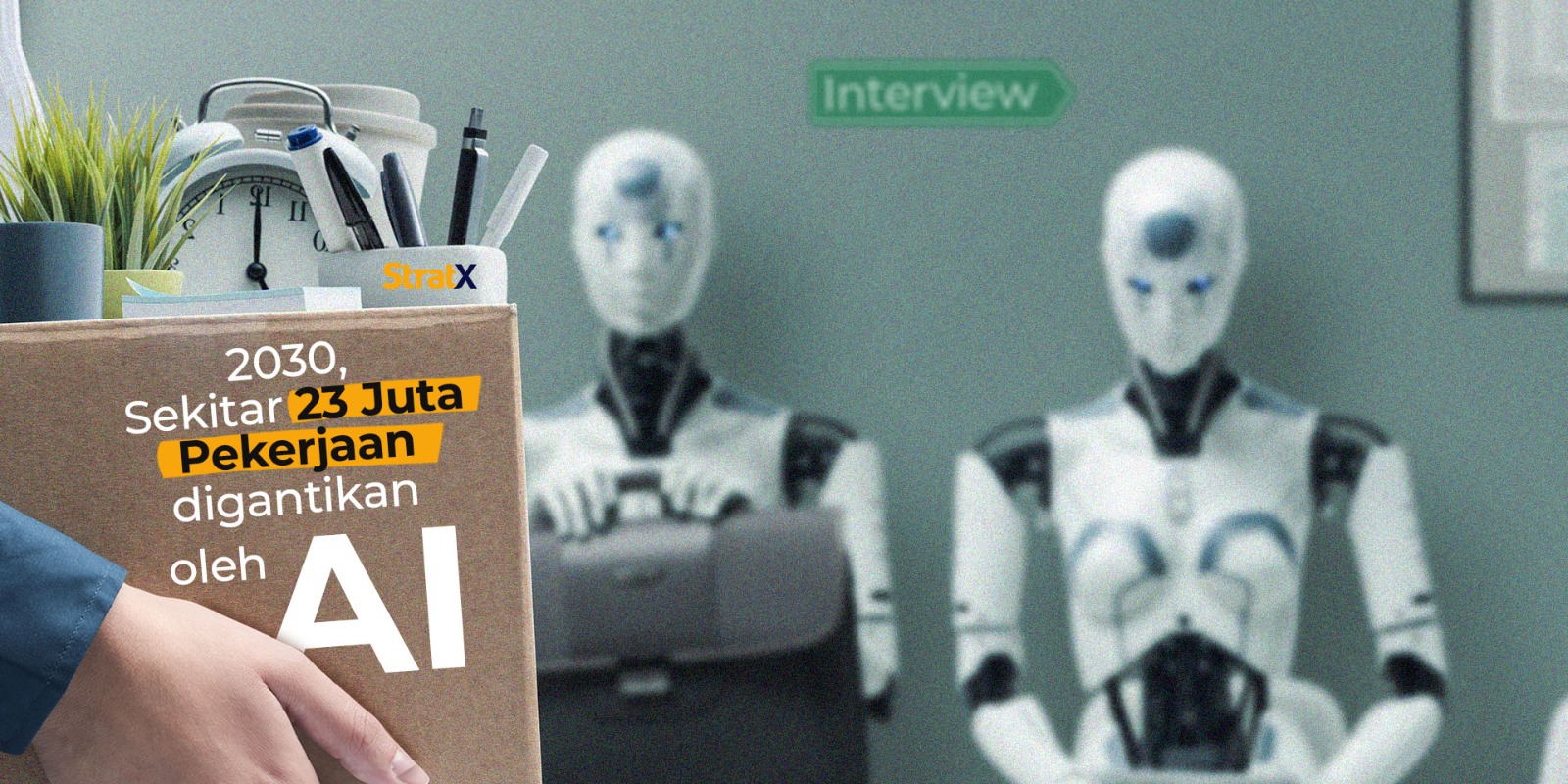Artificial intelligence technology has been discovered for a long time, but in the last few years, it has only been widely discussed, considering that the innovations are getting newer and increasingly adapting to the mindset of human intelligence. So this disruption affects existing jobs or creates ‘new’ jobs.
The using of Artificial Intelligence (AI) has increased drastically in the last 5 years. This results in the fact that AI’s existence could increase work productivity and be more efficient.
After analyzing 2000 work activities for 800 jobs, McKinsey reported that 23 million jobs in Indonesia will be automated within the next 11 years, including jobs that are repetitive, data collectors, production jobs, or machine operators.
We have already felt the impact, more and more fields of work are slowly ‘disappearing’ due to the existence of AI. As an example; automatic drink providers in the form of vending machines or even robots, automatic cashiers, electronic immigration check-in, ticket keeper, data entry, accounting, bookkeeping, and payroll staff, up to secretaries, as compiled by KompasTekno from the World Economic Forum website, Saturday (13 /5/2023) and so on.
Apart from that, Kompas also analyzed that the Large Language Model (LLM) version of artificial intelligence has the potential to provide the added economic value of 5.299 trillion, and this artificial intelligence helps the work of 26.7 million people or 22 percent of the Indonesian workforce across sectors.

Then the creative industry sector, which many previously thought would not be replaced by AI intelligence systems, is slowly starting to be replaced by the Large Language Model (LLM) version of AI. For example, Chat GPT and Open AI, also included in the LLM, have recently been widely discussed as being able to “replace” creative jobs such as writing, graphic design, and so on.
Of course, this type of work and its daily life are very internet-based, and there will be many opportunities to be exposed AI intelligence. However, if used correctly, AI intelligence can increase work productivity. There is no need to be discouraged by the rapid disruption of technology which has brought many changes. Likely, there will always be ‘new’ job opportunities, because not all jobs can be automated. Reporting from Kompas.id which compiled McKinsey reports in 2019, it is predicted that by 2030 there will be 46 million ‘new’ types of jobs that can accommodate Generation Z who will dominate the demographics of the population in Indonesia as a productive generation.
‘New’ job options with AI technology
Following these changes, of course, we need to adapt and improve our skills so as not to be left behind by technological innovation, especially AI. These are some of the ‘new’ jobs that are being created and predicted to be the most needed jobs relevant to global trends.
- AI and Machine Learning Specialist
- Sustainability Specialist
- Business Intelligence Analyst
- Security Analyst
- Fintech Engineer Information
- Data Scientist and Analyst
- Robotics Engineer
- Electrotechnology Engineer
- Farm Equipment Operator
- Digital Transformation Specialist
The Future of Jobs Report 2023 from the World Economic Forum also reports that AI innovation will provide around 2.6 million new job opportunities. Additionally, AI and Machine Learning Specialist, Data Scientist and Analyst, and Digital Transformation Specialist will be the top jobs in the future. It is then predicted that the need for Data Analysts or Data Specialists will increase by 30-35 percent, and information security analysts by 31 percent. Furthermore, the number of AI and machine learning experts is predicted to increase by 40 percent by 2027.
Improved Human Resources
With increasing human resources, technological innovation will have a high impact. Although several programs such as “Prakerja” and “Indonesia Pintar” or “Merdeka” Curriculum, the realization does not change the mindset for ready to face various challenges of technological innovation in the future.
One thing we can be sure of, even though technology makes it easier and can replace it, technology cannot “replace” it completely, because we, humans, create the technology ourselves. Like creative work that can be automated through LLM, for example, of course, it cannot be completely automated, creative work still requires feeling and empathy, which technology cannot do.






